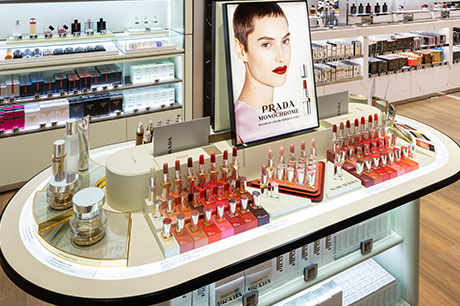Chinese devaluations: little likely impact on duty free
By Kevin Rozario |
 Duty free and travel retailers need to look at Tuesday’s -1.9% devaluation of China’s currency against the US dollar, in some historical – rather than hysterical – context before being taken in by sensationalist media reports about the effects of the move.
Duty free and travel retailers need to look at Tuesday’s -1.9% devaluation of China’s currency against the US dollar, in some historical – rather than hysterical – context before being taken in by sensationalist media reports about the effects of the move.
The government devaluation is designed to cheapen exports in order to re-boot the slowing Chinese economy [which at a six-year low of +7% in Q1 is still far better than any European market can muster].
In the domestic retail sector this will undoubtedly mean higher priced goods – and this will impact luxury players in particular.
One investment analyst told TRBusiness on the day of the -1.9% devaluation: “Take a look at all the luxury goods names today… they’re getting smoked on the China news.”

CNY vs EUR over 1 year
True, proxies for the luxury market in China, such as LVMH and Swatch Group, saw large share price falls this week.
LVMH is currently trading at -7.8% off its Monday night price while Swatch is down by -7.7% over the same time period.
NOT A BIG WORRY…
However, DF&TR players should not be unduly alarmed, and certainly not those in the Eurozone. A glance at historical exchange rates comparing China’s currency the Yuan (CNY), against the US dollar, the euro, and UK pound show that the Yuan still has enough strength to keep Chinese travellers shopping.

CNY vs USD (below) and CNY vs GBP (above) over 1 year
 Taking into account two of this week’s three devaluations [there have been three on successive days], CNY is still trading at +5.4% up against the euro, year-to-date; and -2.8% versus the US dollar and -3.0% against the UK pound over the same period.
Taking into account two of this week’s three devaluations [there have been three on successive days], CNY is still trading at +5.4% up against the euro, year-to-date; and -2.8% versus the US dollar and -3.0% against the UK pound over the same period.
On a one-year scale, the picture for CNY is +15.9% versus the euro, -3.6% against the dollar and +3.6% against the pound (see charts courtesy of Google Finance). And the five-year picture shows CNY gains against all three currencies.
By comparison, the devaluation of the Russian rouble – which is really hurting DF&TR – has led to declines of -32.6% against the euro, -44% versus the US dollar, and -39.8% against the UK pound [all over a one-year period]. The five-year picture is far worse.
If anything, higher priced luxury goods in the domestic Chinese market should spur spending abroad given the yuan’s currently still strong value.
…NOT YET ANYWAY
However, continuing headlines about the devaluing yuan could trigger uncertainty from Chinese travellers, who may postpone trips abroad – even if the currency still represents good value – on fears it will fall further.

Mohn: “no significant impact”
At research group M1nd-set, CEO Peter Mohn says: “In recent years we have conducted various studies in different markets on this subject for our clients, and results have shown that currency devaluations always have some effect on the travelling and shopping behaviour of international travellers.
“However, these effects are usually stronger in the short term and mostly recuperate significantly after a while, but of course it depends on the level of the devaluation. We don’t think this -1.9% devaluation will have a significant impact on the shopping behaviour for luxury goods, especially not on travellers from tier 1 and 2 cities.”
MORE SERIOUS STRUCTURAL ISSUES?
The worry is the possibility of a more serious meltdown of the Chinese economy leading to further small currency adjustments – or one big one. The investment analyst comments: “The devaluations might imply they [the Chinese government] could be in trouble and signalling (or partially admitting) they have a problem.”
This could also mean that the consumer in China is losing some of his steam and that there might be other structural issues in the market. However, if those materialise, the impact won’t be purely on the DF&TR channel but on the entire global economy.
JEDCO launches multi-category tenders at KAIA T1
Jeddah Airports Company (JEDCO KSA) has issued a request for proposals for several...
Alcohol insights: Conversion up, spend down in Q4
Conversion of visitors in the alcohol category in duty free has risen to 54% in Q4 2023,...
Heinemann Asia Pacific makes breakthrough in New Zealand at AKL
Heinemann Asia Pacific is set to enter the New Zealand market with three new retail concepts at...
-
 International,
International,JEDCO launches multi-category tenders at KAIA T1
-
 International,
International,Alcohol insights: Conversion up, spend down in Q4
-


In the Magazine
TRBusiness Magazine is free to access. Read the latest issue now.

 Trbusiness. The travel retail Trbusiness. The magazine for global retail and duty free professionals.
Trbusiness. The travel retail Trbusiness. The magazine for global retail and duty free professionals.





















